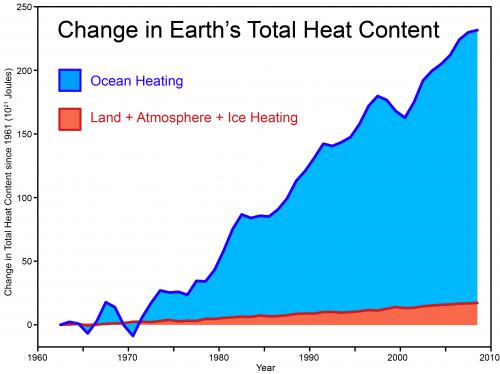 Arguments
Arguments
 Software
Software
 Resources
Comments
Resources
Comments
 The Consensus Project
The Consensus Project
 Translations
Translations
 About
Support
About
Support


Latest Posts
- Two-part webinar about the scientific consensus on human-caused global warming
- Sabin 33 #22 - How does waste from wind turbines compare to waste from fossil fuel use?
- Clean energy generates major economic benefits, especially in red states
- 2025 SkS Weekly Climate Change & Global Warming News Roundup #13
- Skeptical Science New Research for Week #13 2025
- Climate skeptics have new favorite graph; it shows the opposite of what they claim
- Sabin 33 #21 - How does production of wind turbine components compare with burning fossil fuels?
- China will need 10,000GW of wind and solar by 2060
- 2025 SkS Weekly Climate Change & Global Warming News Roundup #12
- Skeptical Science New Research for Week #12 2025
- Climate Fresk - a neat way to make the complexity of climate change less puzzling
- Sabin 33 #20 - Is offshore wind development harmful to whales and other marine life?
- Do Americans really want urban sprawl?
- 2025 SkS Weekly Climate Change & Global Warming News Roundup #11
- Fact brief - Is waste heat from industrial activity the reason the planet is warming?
- Skeptical Science New Research for Week #11 2025
- Visualizing daily global temperatures
- Sabin 33 #19 - Are wind turbines a major threat to wildlife?
- The National Hurricane Center set an all-time record for forecast accuracy in 2024
- 2025 SkS Weekly Climate Change & Global Warming News Roundup #10
- Fact brief - Is Greenland losing land ice?
- The Cranky Uncle game can now be played in 16 languages!
- Skeptical Science New Research for Week #10 2025
- Climate Adam: Protecting our Planet from President Trump
- Sabin 33 #18 - Can shadow flicker from wind turbines trigger seizures in people with epilepsy?
- Cuts to U.S. weather and climate research could put public safety at risk
- 2025 SkS Weekly Climate Change & Global Warming News Roundup #09
- Fact brief - Are high CO2 levels harmless because they also occurred in the past?
- Skeptical Science New Research for Week #9 2025
- Is CO2 plant food? Why are we still talking about this?
Total Heat Content (2011 update)

Total amount of heat from global warming that has accumulated in Earth's climate system from 1962 to 2008, from Church et al. (2011) (many thanks to Neil White from the CSIRO for sharing their data). Also see this graphic that shows the ocean heating in two layers, 0-700 meters and 700-2000 meters deep.
Carbon dioxide from burning fossil fuels, and other greenhouse gases, absorb and trap heat energy that would otherwise be radiated to space, and since the input of energy from the sun is about constant on average, there is an energy imbalance and heat accumulates in Earth's climate system. About 90% of the excess heat of global warming goes into heating the oceans, and only about 3% of global warming goes into heating the atmosphere (see summary here). The ocean has such a high heat capacity relative to the land and atmosphere that relatively small exchanges of heat between the ocean and atmosphere can cause significant changes in the surface temperature, and this internal shuffling around of heat within our climate system is why the surface temperature record is such a noisy signal.
SkS Resources that use this Graphic
- Global cooling - Is Global Warming Still Happening?
- A Big Picture Look at Global Warming
- The Earth Continues to Build Up Heat
- The Big Picture
- Going Down the Up Escalator, Part 2
- A Comprehensive Review of the Causes of Global Warming
- What's Happening to Tuvalu Sea Level?
- What Has Global Warming Done Since 1998?
- Updating the Climate Big Picture
- Pielke Sr. and SkS Dialogue Final Summary
- Baked Curry: The BEST Way to Hide the Incline
- Pielke Sr. Misinforms High School Students
- What's Happening To Tuvalu Sea Level?
- Lessons from the Whitehouse-Annan Wager
- NASA Scientists Expect More Rapid Global Warming in the Very Near Future (Part 1)
- Fritz Vahrenholt - Duped on Climate Change
- Breaking News…The Earth Is Warming…Still!
- Search For 'Missing Heat' Confirms More Global Warming 'In The Pipeline'
- Christy Exaggerates the Model-Data Discrepancy
- Response to Vahrenholt and Luning
- Ocean Heat Flux and the Arctic
- Hiding the Incline in Sea Level
- Still Going Down the Up Escalator
- Interactive Mythbusting in Lane Cove
- Christy Exaggerates the Model-Data Discrepancy
- Fred Singer - Not an American Thinker
- 4 Hiroshima bombs worth of heat per second
Images
Printable Version | Back to Graphics by Skeptical Science
|
|
Skeptical Science Graphics by Skeptical Science is licensed under a Creative Commons Attribution 4.0 International License. |
THE ESCALATOR

(free to republish)
























































